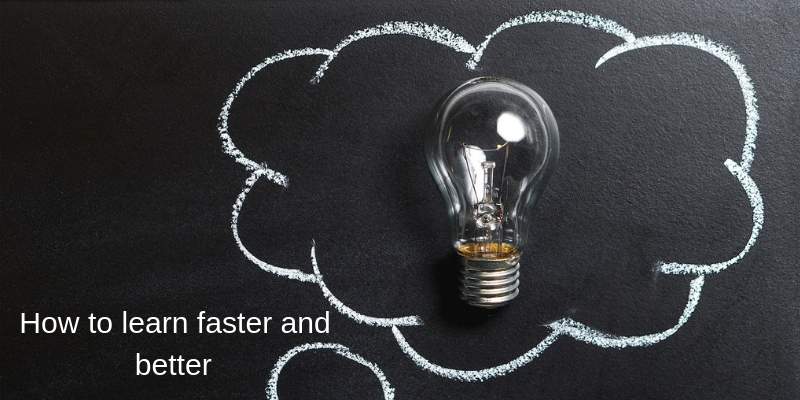
When we buy a new car, it comes with an instruction manual. The vehicle manual acts as a textbook on how to own a car; it explains to us in great detail the various vehicle parts and required maintenance, and provides us with information on the vehicle’s warranty.
When it comes to our brains, we have no such instruction manual. It’s an everyday life experience that many of us share that when we go to college or take a training class for work, we find ourselves pressed for time and need to cover a lot of new material very quickly.
A Lifetime of Learning
According to a 2016 Pew Research Center survey, 54% of American workers say they need to get retraining, to obtain a certificate or acquire a new skill to remain relevant and employable in the American workplace. Due to the flexible nature of ever-changing job market requirements, more American workers realize that continuous education and professional retraining require a commitment that will now extend across their entire lifetimes.
“Education is the passport to the future, for tomorrow belongs to those who prepare for it today.” Malcolm X
If you find yourself needing to learn something quickly and retain the information for an exam or interview, here are lifehacks you can try that will assist you. These are some things you can do to learn a new subject quickly and still have an impressive rate of retention when it comes to taking the exam.
Active learning helps you learn information faster, leading to better understanding and better memorization rates.
- Get engaged with the subject matter.
Make sense of it and impart personal meaning to it. The more it makes sense to you, the more you will remember it.
- Make it mean something.
Movement while learning helps your brain process the information better, leading to a faster pace of learning.
- Get moving.
Don’t stick just to required reading. If you find a textbook that is related to what you’re learning and you find it compelling, go ahead and buy it. You will remember it better when you see the information presented in an exciting way, so don’t be afraid to buy textbooks that you are personally drawn to.
- Buy textbooks that you find interesting.
Listening to music keeps your mind engaged while you’re learning large amounts of new content.
- Music is your new best friend.
No, seriously. Research shows that you are better able to recognize something if you learn it once, then give yourself a chance to relearn it a few days later. It provides your long-term memory a better opportunity of saving the information.
- Want to remember something? Forget about it!
The best online book retailers let you not only buy textbooks for a better price, but they also allow you to sell your school books when you are through with them. Want an even better deal? Rent your latest books and educational tools like iclickers and e-books.
- Save money while you learn.
Find out how much you can get for your old books. What’s the ISBN? It’s the barcode that belongs to each book, and you can usually find it on the book’s back cover.
- Scan your book’s ISBN using your smartphone.
If you sleep on new information, your brain has time to buffer the recently gathered knowledge.
- Sleep on it.
Incorporate a variety of sounds and different scents to trigger better recollection when it comes time to take the exam.
- Use all your senses.
It’s like an exercise session for your brain. When you explain it to someone else, it forces you to take an active part in synthesizing the information. You are required to summarize it and organize the information into segments. Teaching the material invites you to be an active participant, and an active learner remembers the information later.
- If you want to learn something, teach it.
What’s that? It’s a crazy saying, a rhyme or a song that you create that helps you remember information. Take as an example, “Dear King Philip Came Over For Good Soup.” Many students have memorized this sentence as a learning aid in their high school Biology class to learn the taxonomy system of classification: Domain, Kingdom, Phylum, Class, Order, Family, Genus and Species. The more novel and outlandish you make your mnemonic phrase, the better you can recall it at a later time.
- Create a mnemonic device.
These are visual, auditory, and kinesthetic. Draw it, diagram it or create a brain map. Create a catchy tune, and that will help you remember the information.
- There are three primary ways to learn something new.
Try holding manipulatives, or practically applying the concept.
- Kinesthetic students will learn best by working through the problem.
Break down even the most complex concepts into something like flying a kite, or using building blocks. The act of doing exercises like these will help you to understand and remember the idea for later recall.
- What’s that mean for you?
Why Textbooks Still Matter
Recent studies show that students still learn better from textbooks than from worksheets or online searches. Why? It seems that a book acts as a roadmap, telling us which direction to take to arrive at our destination as quickly as possible.
Be Sure to Choose the Right Book
The right textbook summarizes all the information we need on a particular subject, and it stores it all in one place. The very act of organizing the data seems to help the human brain remember a higher percentage of the information for a more extended period of time.
Some of the most highly developed countries like Finland and Singapore, in fact, insist that all students be given and use nationalized texts. These countries recognize the importance of instructional books, whether in hard copy or e-book format. Visit our website today to find out the best ways to earn money while you learn.